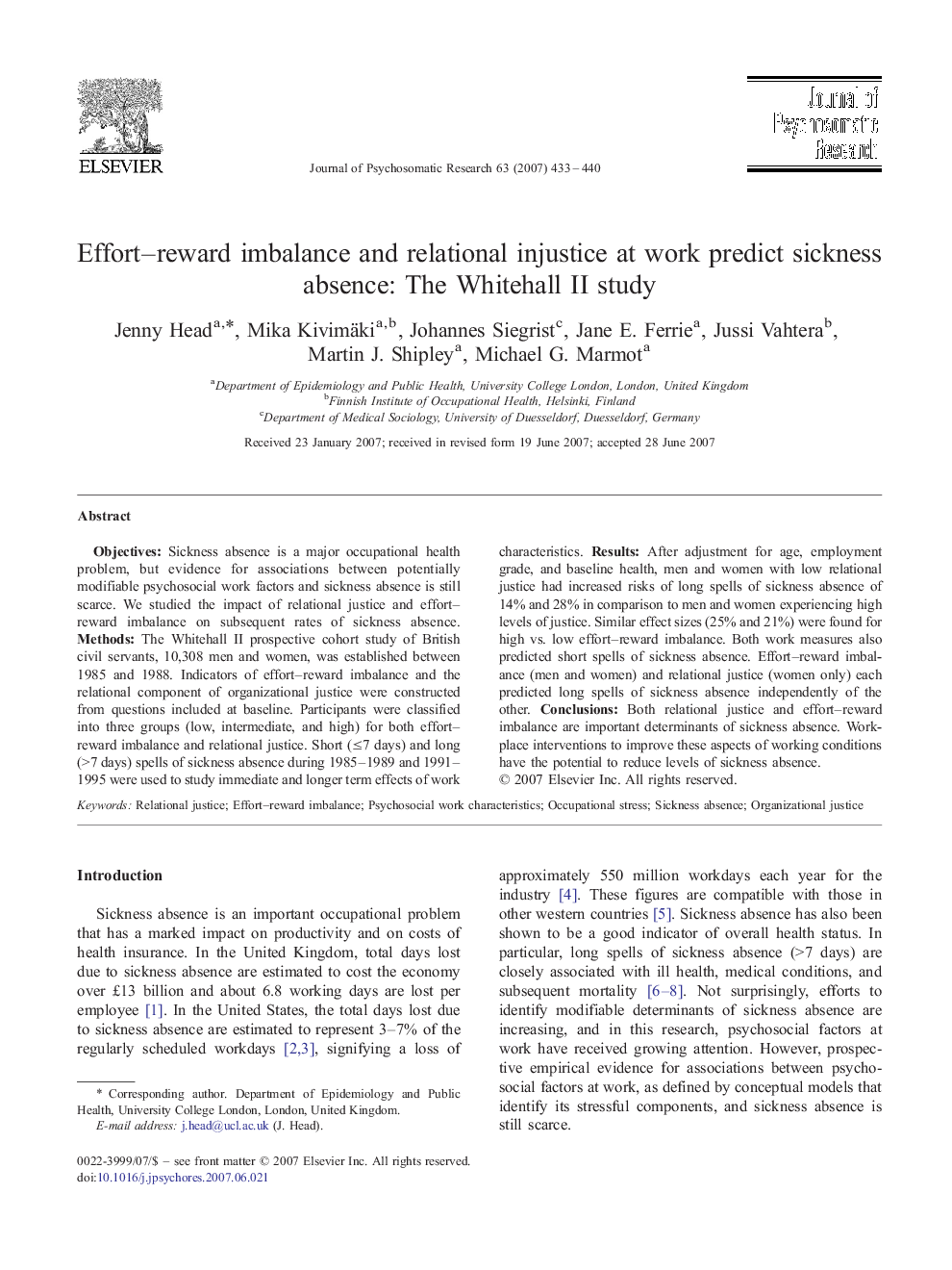| Article ID | Journal | Published Year | Pages | File Type |
|---|---|---|---|---|
| 951151 | Journal of Psychosomatic Research | 2007 | 8 Pages |
ObjectivesSickness absence is a major occupational health problem, but evidence for associations between potentially modifiable psychosocial work factors and sickness absence is still scarce. We studied the impact of relational justice and effort–reward imbalance on subsequent rates of sickness absence.MethodsThe Whitehall II prospective cohort study of British civil servants, 10,308 men and women, was established between 1985 and 1988. Indicators of effort–reward imbalance and the relational component of organizational justice were constructed from questions included at baseline. Participants were classified into three groups (low, intermediate, and high) for both effort–reward imbalance and relational justice. Short (≤7 days) and long (>7 days) spells of sickness absence during 1985–1989 and 1991–1995 were used to study immediate and longer term effects of work characteristics.ResultsAfter adjustment for age, employment grade, and baseline health, men and women with low relational justice had increased risks of long spells of sickness absence of 14% and 28% in comparison to men and women experiencing high levels of justice. Similar effect sizes (25% and 21%) were found for high vs. low effort–reward imbalance. Both work measures also predicted short spells of sickness absence. Effort–reward imbalance (men and women) and relational justice (women only) each predicted long spells of sickness absence independently of the other.ConclusionsBoth relational justice and effort–reward imbalance are important determinants of sickness absence. Workplace interventions to improve these aspects of working conditions have the potential to reduce levels of sickness absence.
